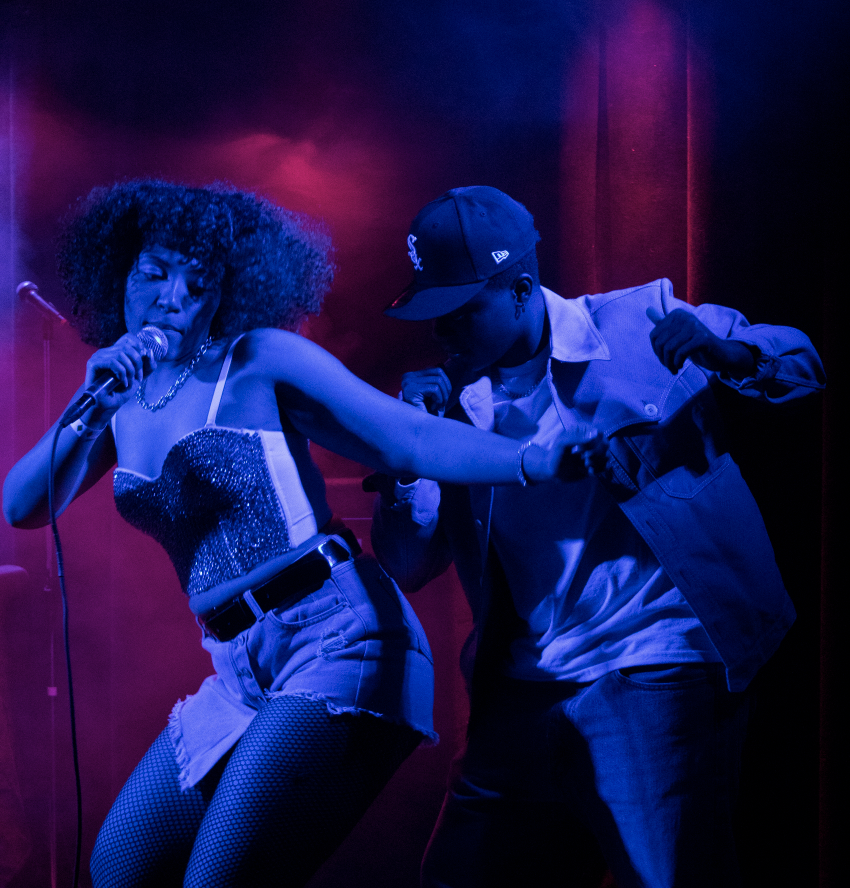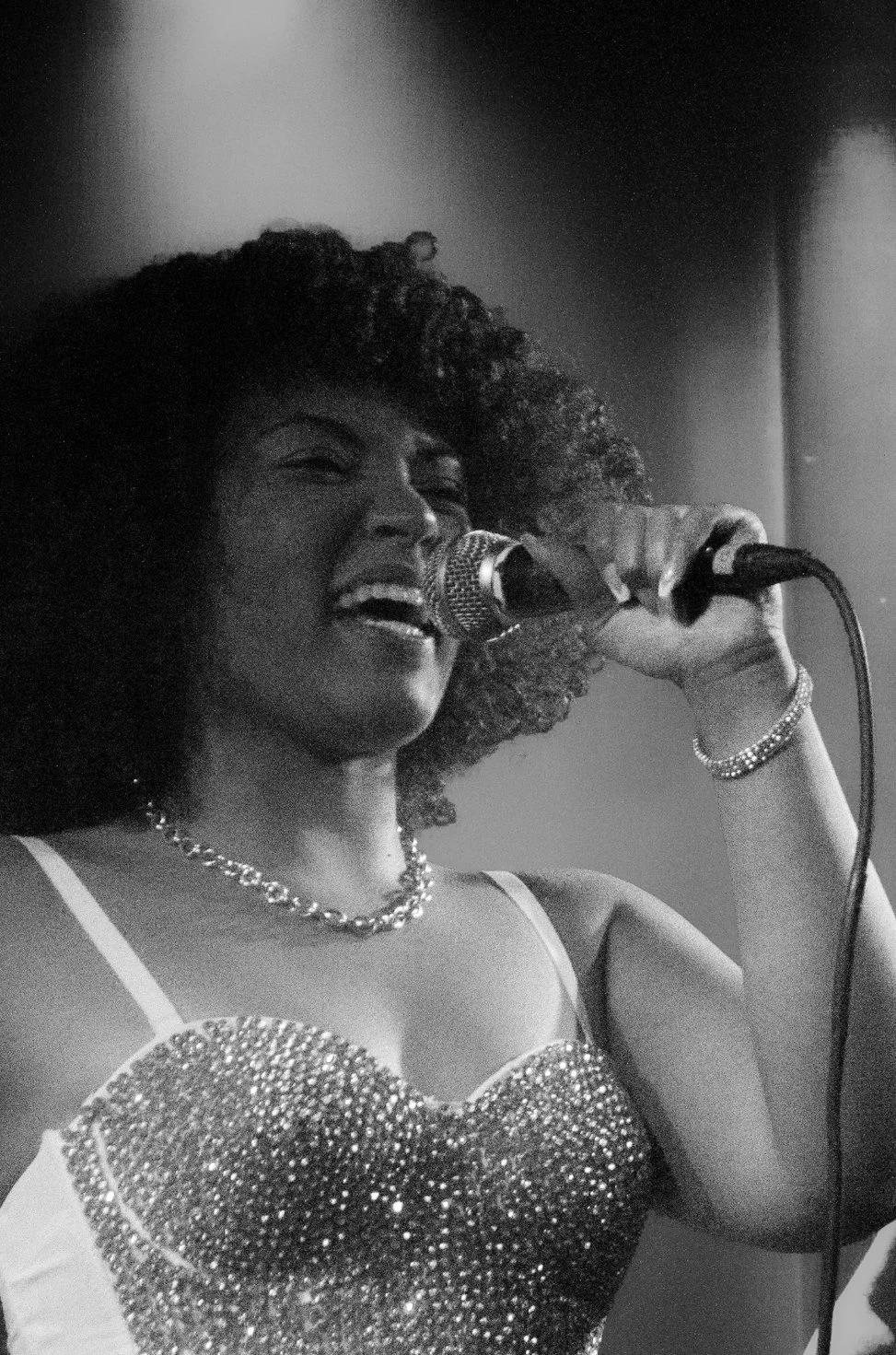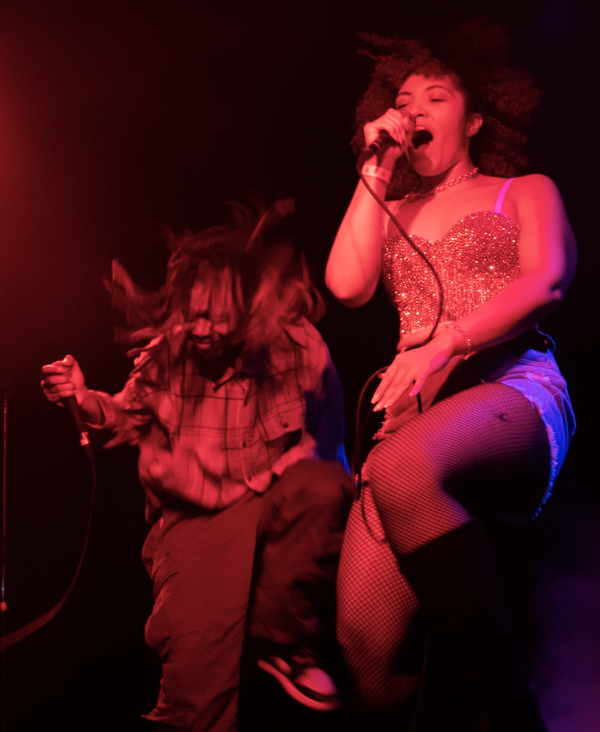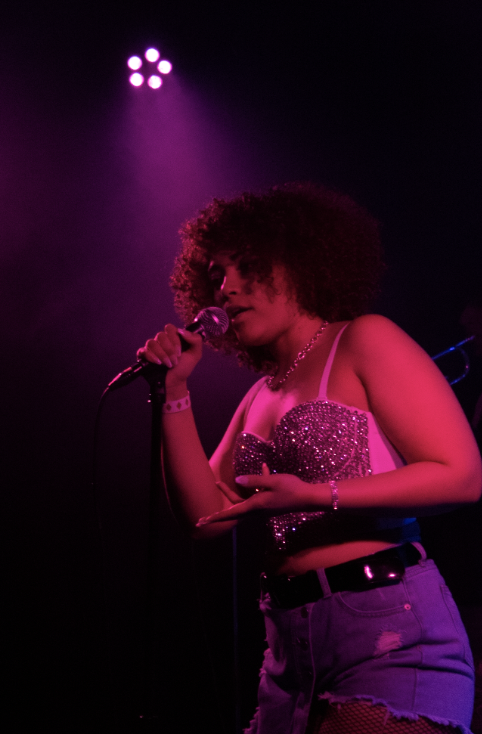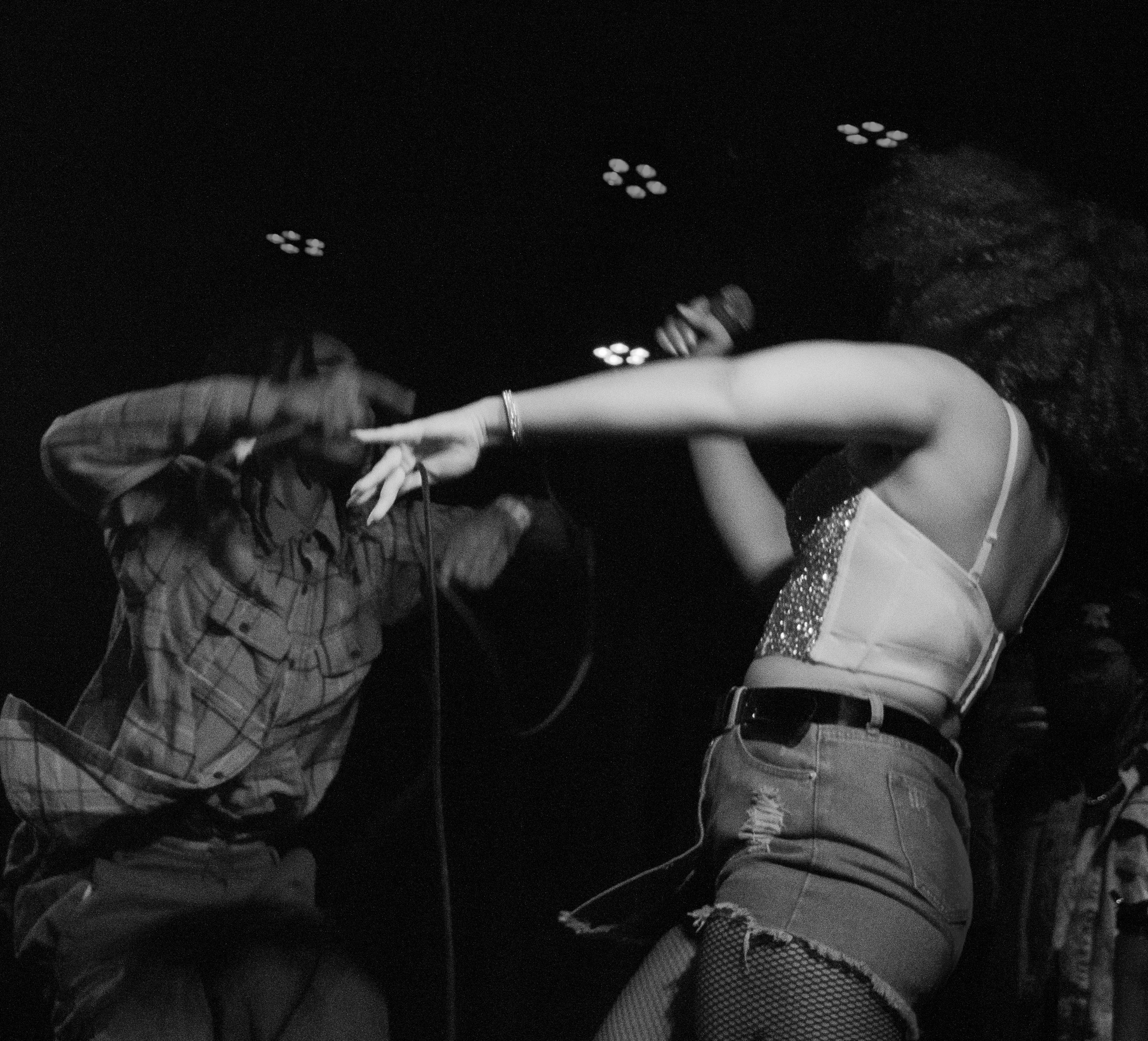A Snapshot of Selah C.: Radio K Short Circuit Event Opener
Image captured by Ash Gustafson
Let me set the scene: the venue is dark and cool, the air not yet hazy from the fog machine backstage. But it will be—and soon. Individuals hang back, holding full drinks and lingering by the edge of the pit. A friend leans over to another friend and whisper-shouts the obvious, the elephant in the room—“I’m so excited to see her!”. As if on cue, the dim lights give way to strobes that illuminate a figure emerging from backstage. She’s clad in an oversized fur coat that she sheds during her first song, revealing a sequined top almost as dazzling as the eager smile she flashes the crowd between her first verses. You’re at your first Selah C. concert and from the moment she picks the microphone out of the stand onstage, you’re captivated.
Selah opened Radio K’s third Short Circuit artist residency event with her ballad BLESSINGS. From there, she thoughtfully wove between slow, sensual songs, lyrical political anthems and high-energy tracks that got the crowd moving. She was seldom performing alone; during her 45-minute set she shared the stage with a 6-piece female dance troupe for a handful of songs, a local male producer for some dynamic harmonies, and an emerging trumpet player for emphasis. A few select pieces even directly encouraged audience participation—in the middle of her rhythmic Double Dutch, for example, she instructed attendees to get onto the dance floor and do the Double Dutch (a dance move she pioneered, mimicking the childhood jump-rope game). She spent a few minutes of the song encouraging the audience to give the Double Dutch a try. Under her tutelage, we all mastered the move before the song was over.
Golden was lucky enough to have gotten the opportunity to have a conversation with Selah C about her craft and what she feels it means to her community.
Image captured by Meghan Buckenberg
Golden: Selah, your performance was phenomenal. How did you get your start in the music scene?
Selah: So, I wrote and recorded my first song when I was 10 years old. It was called Don’t Bully. After that is when I really started getting into it and doing talent shows and stuff. I did my first talent show when I was in third grade?
Image captured by Ash Gustafson
Golden: How would you describe your relationship with music?
Selah: Oh, I would definitely describe my relationship with music as therapeutic. I give my music my emotions and my drive, so for me, whenever I’m making or listening to a song I feel like it’s my chance to really be expressive in ways I’m not able to be otherwise. It’s like my diary: some people write, some people paint, I just make music.
Image captured by Ash Gustafson
Golden: Some of the lyrics you performed were quite political!
Selah: I do try to incorporate a lot of political ideas within my music! For me, if there’s something that I’m very passionate about or something I feel the world needs to hear, music is like my toolbox for me to be able to communicate those ideas. I’m really passionate about things like equity within education and environmental justice; if I’m able to communicate my knowledge through my music, I’m hoping somebody will listen to it and be tempted to help or spread the message.
Image captured by Ash Gustafson
Golden: Your concert had a lot of community engagement! Is there a reason you gravitate towards that type of performance?
Selah: When I’m performing, I really feel like it’s important to connect to the audience because those are the people that are coming out to your shows! As far as community involvement is concerned, it’s really important to me to showcase the talent that’s here in the city. There’s so many great artists, especially young artists that are starting to branch out. I brought out a trumpet player named Cyrus and he’s still in high school; the dance group I brought out just graduated from high school last summer. It’s important to me to see the way that youth is rising up and bringing that talent to the surface. Especially in Minneapolis—we’re not really the biggest city people think of when it comes to music yet, but we really do have some of the best talent in my opinion. We just haven’t been showcased to the world yet. It’s only a matter of time before people within Minnesota really start branching out and the country gets to see what we have here.
Image captured by Meghan Buckenberg
Golden: Are there any musicians you look up to for inspiration?
Selah: As far as style is concerned, I am a really big R&B/Neo-Soul fan. A lot of people ask me, Are you a rapper? I really love R&B though—when you listen to it, it’s almost like you’re there watching the instruments being played or the people singing; it’s like you’re brought into that space. Growing up, I was really big on Kindred the Family. I love Erykah Badu—she’s by far one of my favorite artists. Sade—she’s more late 80’s, early 90’s, she’s a big one for me. OutKast, from Atlanta. And I really do enjoy Tupac. A lot of the pioneer groups and artists.
Image captured by Meghan Buckenberg
Golden: What’s your process like for collaborating with other talent?
Selah: A lot of communication, a lot of transparency. I really try to be thorough with my vision and my ideas. I like to make sure I’m connecting everyone together, too…I’m always checking in on people like, you know, with the show, but then also personally—how are things going? How’s that affecting what you’re doing here? Just really making everything flow together.
Image captured by Ash Gustafson
Golden: How do you connect to other artists in the Cities?
Selah: Usually through shows, like the Short-Circuit event!
Golden: Have you encountered any difficulties breaking into the scene at all?
Selah: I don’t want to say that it’s been a lot of challenges since I’ve been making music, just a lot of patience and realizing things don’t come overnight. Being a woman in hip-hop, there can be a lot of biases or inequalities because it’s such a male dominated sphere. There might not be men who take you seriously. You have to stand out more, so, like, putting in way more work than your male counterparts might have to. That was one of the biggest things for me: letting people know I have something to say, that I have talent.
Image captured by Ash Gustafson
Golden: How do you use your style, appearance-wise, in your self-expression?
Selah: I’m really big on my hair especially! I really feel like my curls define who I am, so a lot of the time I use my hair to represent my freedom and authenticity. I also do have a clothing line, Authentikally Me, which launched last year—it’s basically a manifestation of affirmations, so most of our clothes represent positive messages. I really want to empower people when they wear their clothes—like, for me, I like to wear clothes that I feel empowered by.
Golden: Do you have any other words for our readers?
Selah: I just want to say thank you to everyone who supports local artists, thank you to anyone who came out to the show! Support means the world to emerging artists.
Check out Selah C. on Spotify here! Thank you to Selah C. for a beautiful, thoughtful conversation and thank you to Radio K, host of the Short Circuit Event and college radio station working to promote up-and-coming artists locally, nationally and internationally.


